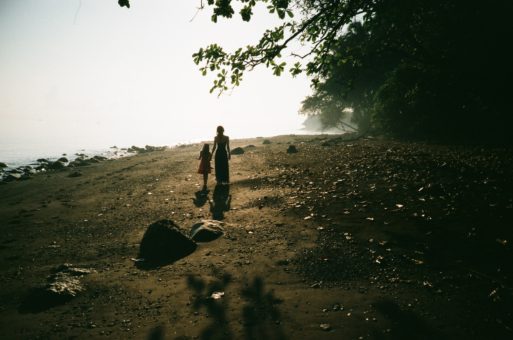 You’ve no doubt caught on to the pun of my column’s title, “The Next Chapter”; how my posts are about literature, thus “chapters,” and also how death is a kind of “next stage” in life. This idea of death as a natural progression has been a big theme throughout many of my pieces, but perhaps in none more so than today’s: on “Nature,” by Henry Wadsworth Longfellow:
You’ve no doubt caught on to the pun of my column’s title, “The Next Chapter”; how my posts are about literature, thus “chapters,” and also how death is a kind of “next stage” in life. This idea of death as a natural progression has been a big theme throughout many of my pieces, but perhaps in none more so than today’s: on “Nature,” by Henry Wadsworth Longfellow:
As a fond mother, when the day is o’er,
Leads by the hand her little child to bed,
Half willing, half reluctant to be led,
And leave his broken playthings on the floor,
Still gazing at them through the open door,
Nor wholly reassured and comforted
By promises of others in their stead,
Which, though more splendid, may not please him more;
So Nature deals with us, and takes away
Our playthings one by one, and by the hand
Leads us to rest so gently, that we go
Scarce knowing if we wish to go or stay,
Being too full of sleep to understand
How far the unknown transcends the what we know.
Here, “Nature” (9) is personified, but as a “fond mother” (1) figure, not as a scary Grim Reaper, the way death is often represented. This means that in the poem, death is not forcing people away unwillingly, but rather, it “leads us to rest so gently, that we go/Scarce knowing if we wish to go or stay” (11-12). The process happens so naturally that we aren’t even fully aware of our own opinions on it. And the idea of it being “rest” that we go toward is comforting in itself; not only this, but the “unknown” (14) quality of death is not frightening to us when we die, because we are “too full of sleep to understand” (13). Death is painted as a kind of anesthesia that relaxes us and slowly carries us away from the present, from life.
In line with this idea of tenderness, death is patient with us: “So Nature deals with us, and takes away/Our playthings one by one…” (9-10). Like a mild-tempered parent, death eases us out of what we are doing, rather than merely commanding us to stop our actions and go. Death realizes that we have our doubts; as Longfellow puts it, we are “half reluctant,” (3), “nor wholly reassured and comforted” (6). We’re loath to give up the world we know so well for one we don’t know at all. But as the final line states, “the unknown transcends the what we know” (14). Sure this means we’re not certain about what comes next, but maybe that’s because what comes next is too great for us to even begin to fathom. There’s always hesitation with things that are unknown, but there doesn’t need to be. Death will lead us away gently, as a loving and caring parent, to our final rest.

 “Nature” by Henry Wadsworth Longfellow
“Nature” by Henry Wadsworth Longfellow


 “As Tears Go By” by Marianne Faithfull
“As Tears Go By” by Marianne Faithfull

 Funeral Favors Offer Visitors a Tangible Memento
Funeral Favors Offer Visitors a Tangible Memento















